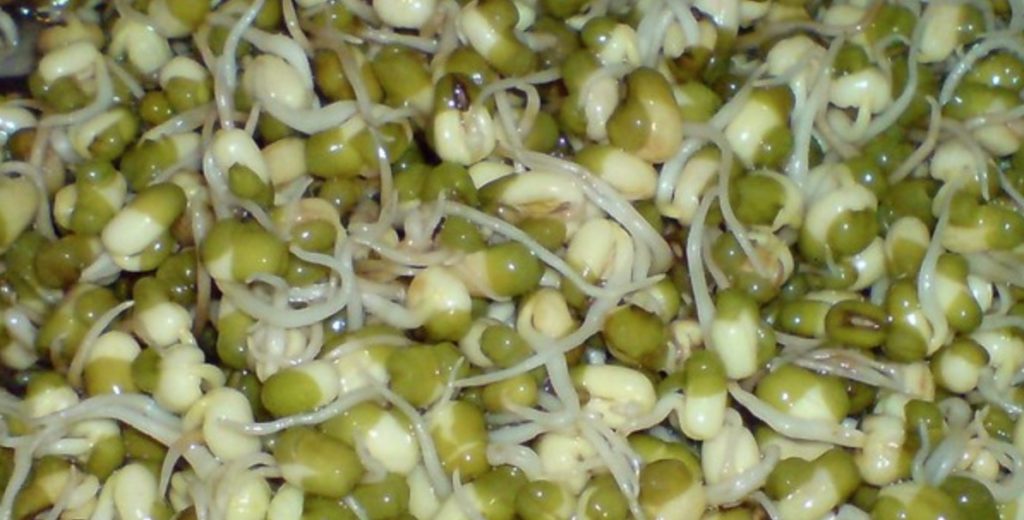Many people not only love the taste of Mung Bean Sprouts but love the fact that they are relatively low in calories while being rich in nutrients. They make a great source of dietary fiber.
They are often naturally found as part of an Asian dishes and have numerous culinary uses; whether they be stir-fried or used in a salad.

Mung Beans Benefits
They have been linked with an assortment of health benefits such as reducing anxiety (as Mung Bean Sprouts are vitamin C rich; maintenance of good eye sight (great source of folate; supporting the immune system (an iron rich food; supporting cardiovascular health and bone health (rich in vitamin K and manganese).
Mung Bean Sprout Nutrition Facts and Information
When eaten raw bean sprouts have an estimated glycemic load of three. They consist 70% carbohydrates; 5% fat; and 25% protein.
There is a lot more good than bad associated with consuming this food. Indeed the only real downside is that most of the calories in them come from sugars; but given their low calorific value this is hardly a major problem at all.
The pluses far outweigh the minuses as they are low in fat, sodium and cholesterols, and are a great source of vitamins and minerals.
As mentioned above as they are rich in magnesium; manganese; and vitamin K they are thought to be good for people with bone issues such as osteoporosis.
One hundred grams (100 g) of raw mung bean sprouts has jus 30 calories and contains 3 grams of protein.
Bean Sprouts Nutritional Facts
Vitamins
They are a source of the following vitamins (amounts per 100g)
Vitamin A: 21 IU
Vitamin C: 13.2 mg
Vitamin E: 0.1 mg
Vitamin K 33 micrograms
Vitamin B group
Thiamin: 0.1 mg
Riboflavin: 0.1 mg
Niacin; 0.7 mg
Folate: 61 micrograms
Pantothenic Acid: 0.4 mg
Choline: 14.4 mg
Minerals (per 100 g)
Calcium: 13 mg
Iron: 0.9 mg
Magnesium: 21 mg
Phosphorous: 54 mg
Potassium: 149 mg
Sodium: 6 mg
Zinc: 0.4 mg
Copper: 0.2 mg
Manganese: 0.2 mg
Selenium: 0.06 micrograms
Dietary Fiber: 1.8 g
How to Sprout Mung Beans
As well as being delicious, sprouting Beans is a pretty easy and fun process: Visit this page for a full guide on how to sprout mung beans and watch the following video.
Final Thoughts
Mung Bean sprouts are tasty, fun to grow, and rich in certain nutrients (e.g., Vitamin K that are often difficult to obtain from non-meat sources. This makes them a definite winner as far as the NutritionalHQ website is concerned.

